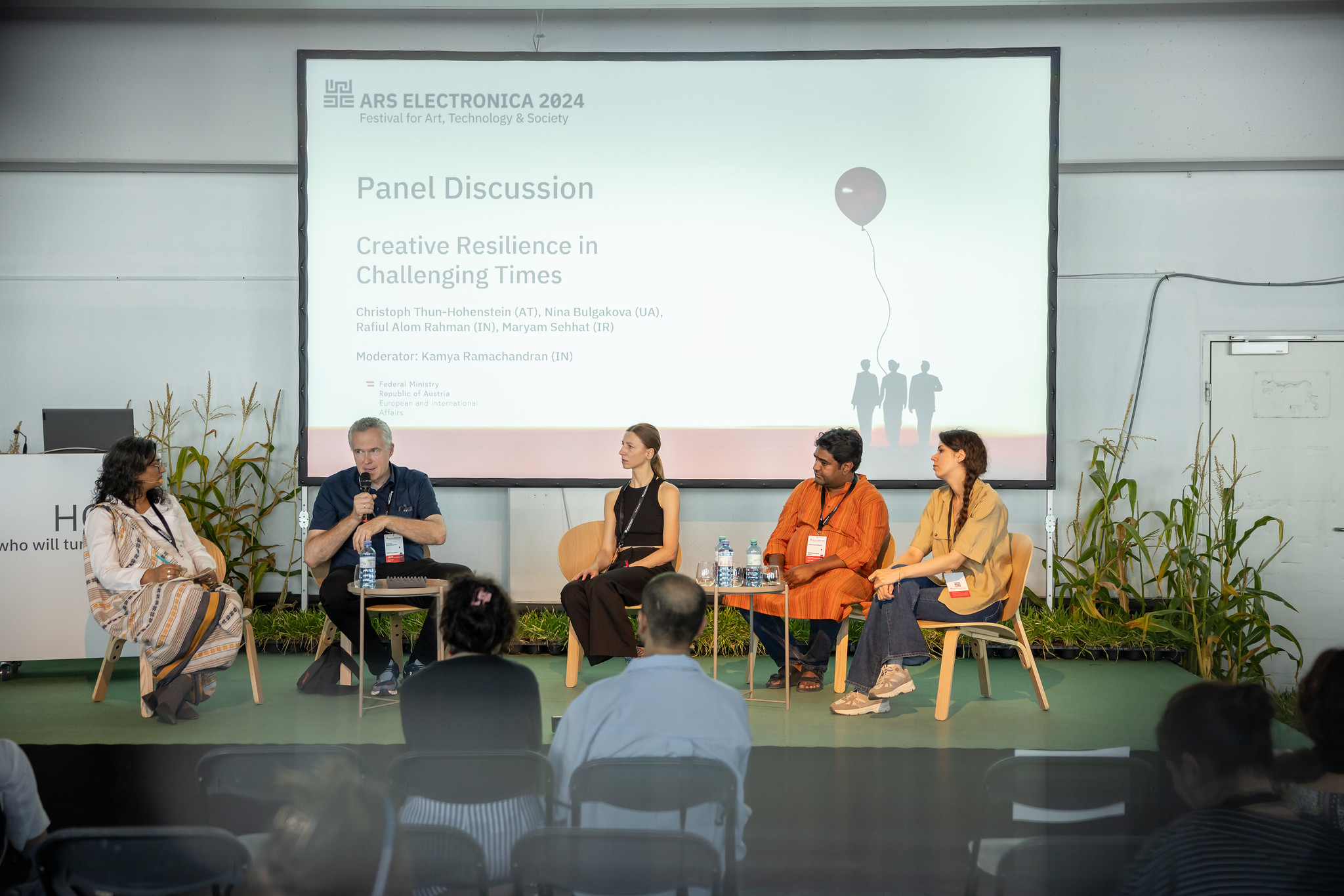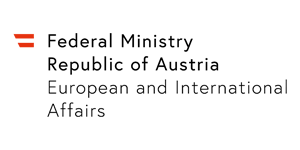State of the ART(ist), a collaboration between Ars Electronica and the Austrian Ministry of Foreign Affairs, focuses on artists who face threats to their existence, whether in the form of political persecution, social circumstances or environmental disasters. In the panel discussion How will we fight for our ‘existence’? will explore how artists articulate the scope and conditions of our existence through their work.
Our existence is continuously challenged by external factors such as war, environmental crises, and social conflicts. However, through the lens of art, we strive to reaffirm and reposition our reality. The discursive program as part of the ‚State of the ART(ist)‘ initiative delves into how artists serve as a resistance movement during moments of crisis, reflecting not only their resilience but also the state of our collective selves.
This panel will explore how artists articulate the scope and conditions of our existence through their work. It will address key questions: What should we fight against, and what should we protect in times of war and social conflicts?
Art, in its unique way, is both an indirect and direct expression of our existence and a means to confront challenges. The diversity and ubiquity of artistic expression highlight where the dynamism of our lives begins and reveal aspects of our existence that we may have forgotten.

Language: EN
Bios
-
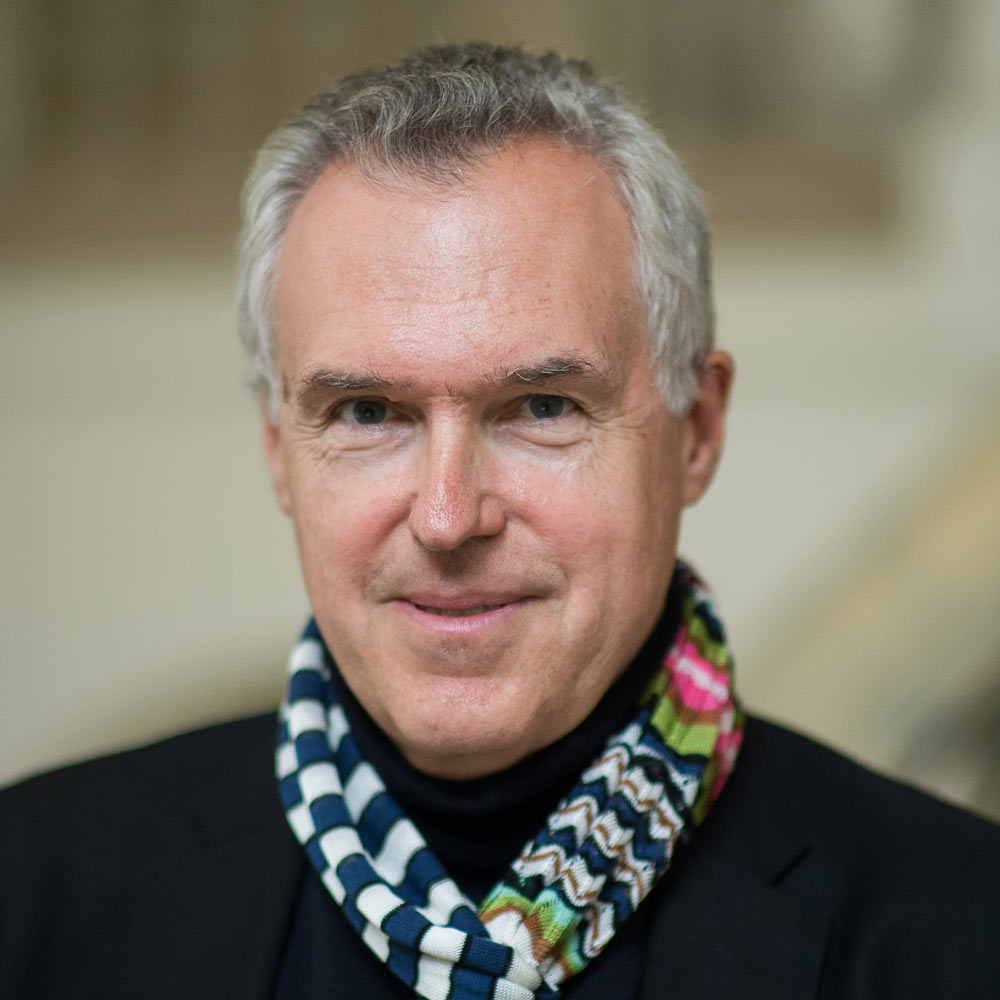 Photo: BMEIA
Photo: BMEIAChristoph Thun-Hohenstein
AT
Christoph Thun-Hohenstein is Director General for International Cultural Relations at the Austrian Foreign Ministry. He was Director of the Austrian Cultural Forum New York from 1999 to 2007. From 2007 to 2011, he served as Director of Departure, Vienna’s Agency for Creative Industries. From 2011 to 2021, he was General Director of the MAK–Austrian Museum of Applied Arts. He directed the Vienna Biennale for Change from 2014 until 2022. Most recently, he initiated the Vienna Climate Biennale.
-
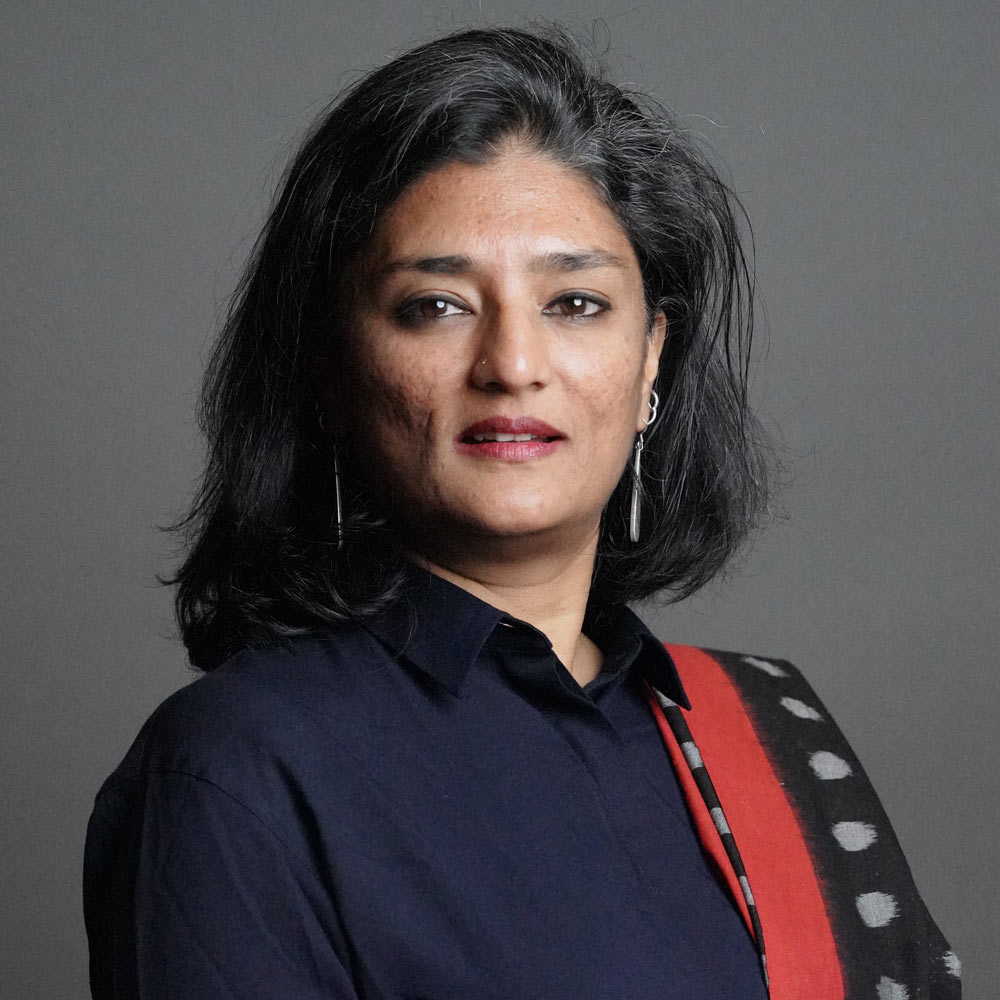
Kamya Ramachandran
IN
Kamya Ramachandran is the Founder-Director of BeFantastic, an innovative collaboration platform that pioneered Bangalore’s TechArt Festival series, most recently titled FutureFantastic. Kamya orchestrates pioneering experiments in transdisciplinary pedagogy focusing on digital culture. As a trained architect, researcher and design educator, with a career spanning geographies of UK, USA, India and Singapore, she convenes diverse collaborative communities through creative practice.
-
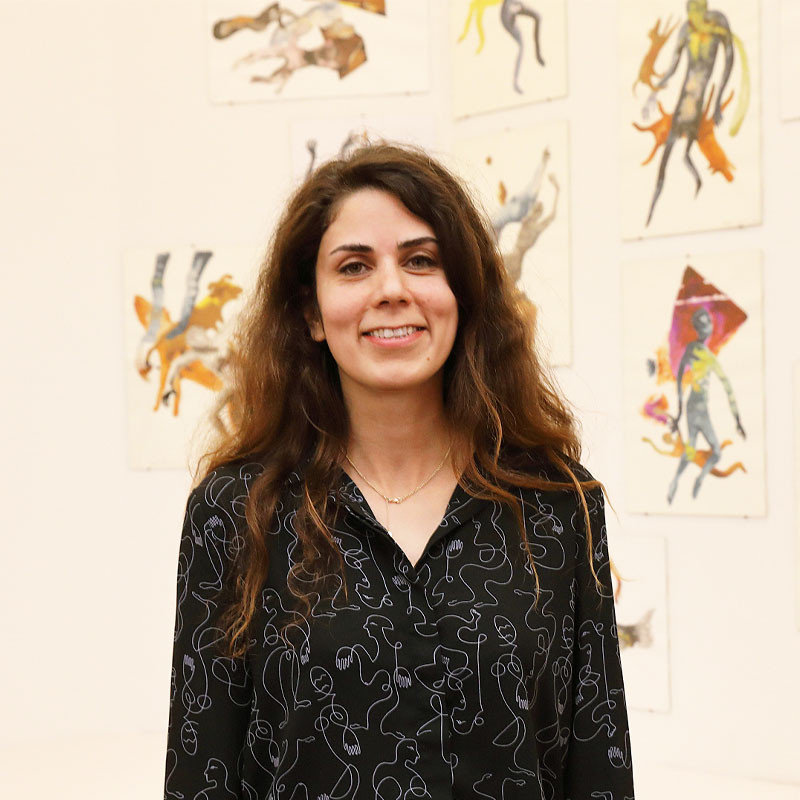 Photo: Thomas Raggam
Photo: Thomas RaggamMaryam Sehhat
IR
Maryam Sehhat wurde im Iran geboren und studierte Malerei an der Universität für Kunst und Architektur in Teheran. 2017 emigrierte sie nach Österreich. Seit 2006 hatte sie zahlreiche Einzel- und Gruppenausstellungen im Iran und in Österreich. In ihren Bildern versucht sie, die physische und mentale Beziehung zwischen Menschen und anderen Kreaturen metaphorisch darzustellen. In ihrer Vorstellung gibt es eine Parallelwelt, in der es keine Rolle spielt, ob man Mensch, Tier oder eine Kombination aus beidem ist.
-
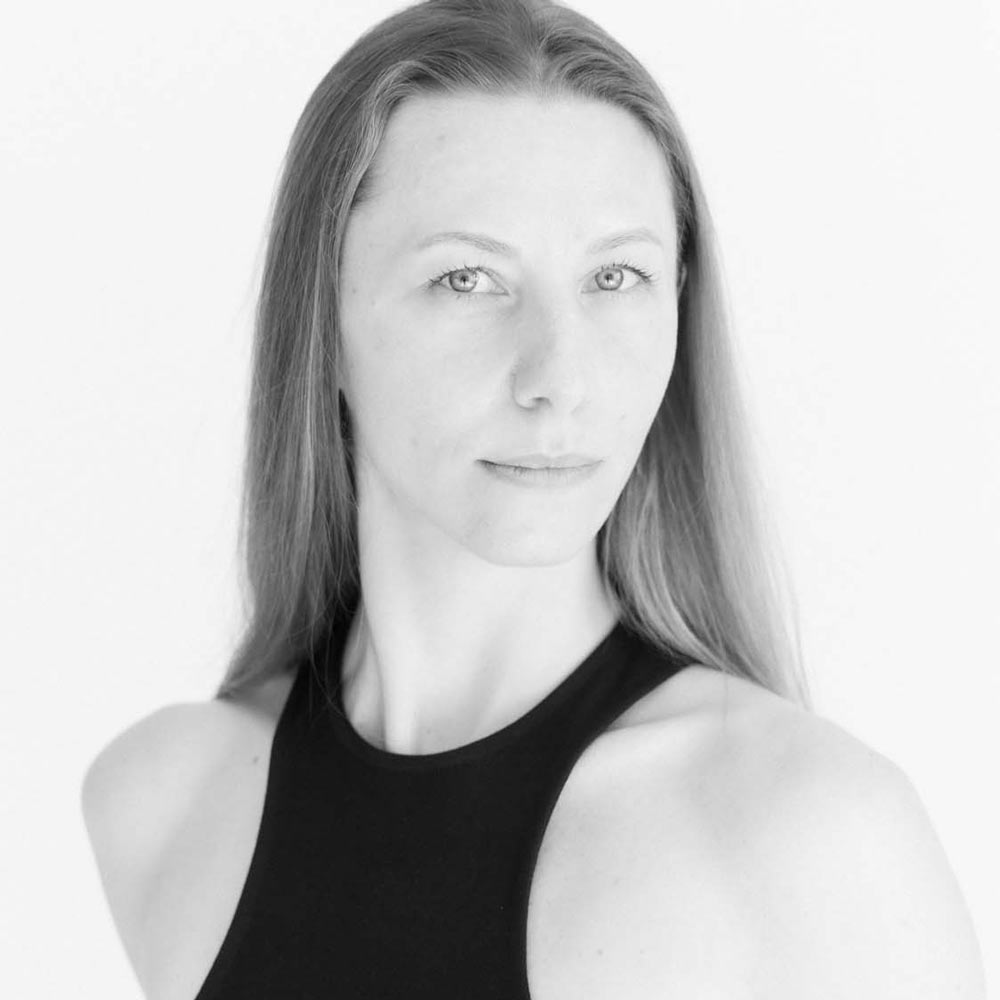 Photo: Nico Backstrom
Photo: Nico BackstromNina Bulgakova
UA
Nina Bulgakova ist eine in Finnland lebende Choreografin und Tänzerin. Sie ist Mitbegründerin des Ethno Contemporary Ballet, einer Tanzkompanie aus Kharkiv (UA), wo sie als Choreografin, Produzentin, künstlerische Leiterin und Tänzerin tätig ist. Zu ihren bisherigen Arbeiten mit dem Ethno Contemporary Ballet als Choreografin und Performerin gehören 4308 (2023), Fertility (2020), ORGANization (2020) und Say It Quieter If You Can (2018).
-
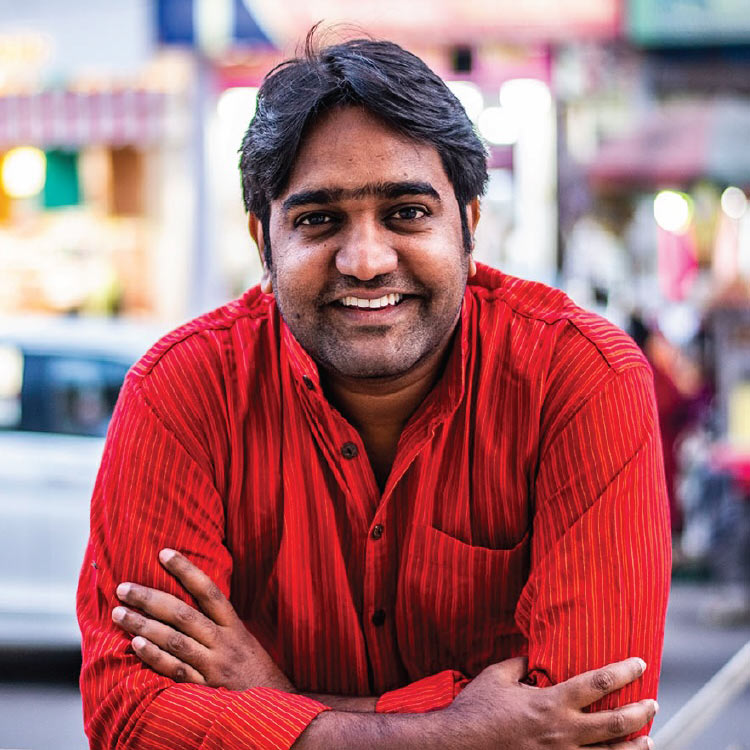 Photo: Pradeep Guha
Photo: Pradeep GuhaRafiul Alom Rahman
IN
Rafiul Alom Rahman ist der Gründer und Leiter von The Queer Muslim Project. Er kann auf zehn Jahre Erfahrung in der Arbeit für LGBTQIA+-Rechte, im Kunstmanagement sowie in der digitalen Lobbyarbeit zurückblicken. Rafiul war 2023 UN Minority Fellow, 2022 CCP Fellow, 2020 SI Leader Lab Fellow und 2018 Acumen Fellow. Im Jahr 2020 wurde er von der Human Rights Campaign zum „Global Innovator“ ernannt. Diese Auszeichnung wurde ihm für seine „Pionierarbeit im Kampf gegen Extremismus, insbesondere durch die Verwendung alternativer Narrative rund um Glauben, Sexualität und Geschlechterausdruck“, verliehen.
Credits
State of the ART(ist) is a collaboration between Ars Electronica and the Austrian Ministry of Foreign Affairs.
